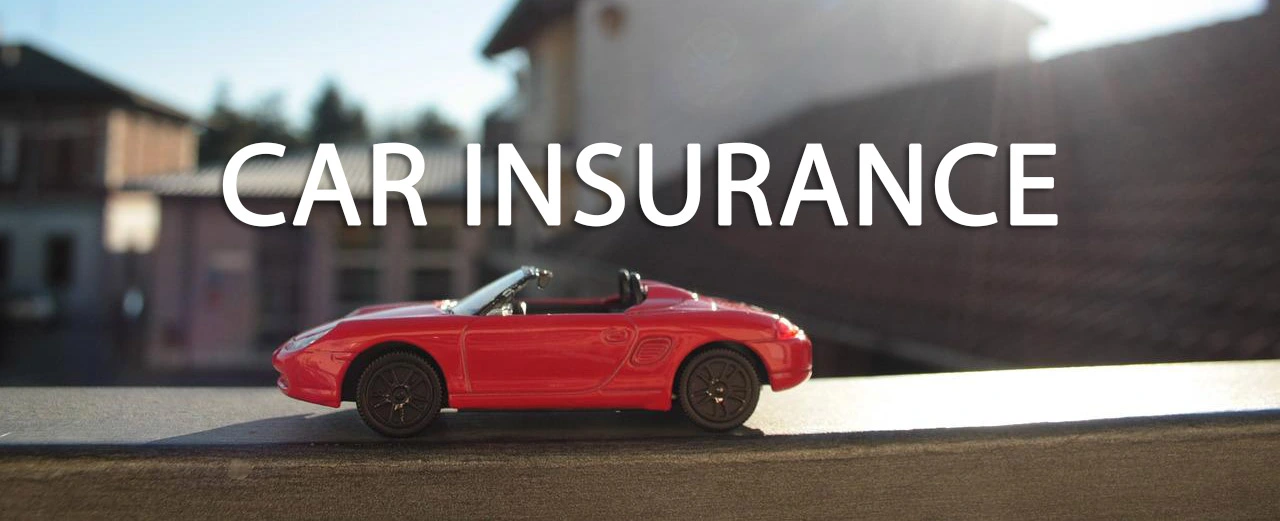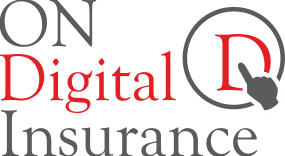Car Insurance

Car Insurance
Car insurance is a legal agreement between you, the insured, and the insurance company or the insurer, wherein the insurer is liable to cover any financial losses that occur because of an accident or theft of the car or damages to a third party because of the car. The extent of coverage, however, depends on the terms and conditions of the car insurance policy document.
Now buy your dream car without the financial stress of owning one. Car insurance allows you to safeguard yourself and your dependents from financial losses that could arise out of damages to your car. The damages may occur because of accidents, theft, natural calamities, and much more. Buying car insurance is simple, hassle-free, and convenient.
Why Do You Need Car Insurance?
If you do not already have insurance on your car, you need one immediately because:
- It is mandatory by Indian law, as per the Indian Motor Vehicles Act.
- It protects from any third-party liabilities arising because of damages caused by your car.
- It protects you from the financial losses of car theft.
- It protects you from losses arising out of accidents and damages from natural calamities.
- With car insurance, you can avail yourself of a personal accident cover up to a certain amount.
Types Of Car Insurance Policies In India.
Depending on the extent of financial coverage and risks you want to cover against, car insurance policies in India are essentially of two types:
1. Third-Party Liability Policy
Third-party liability insurance is the most basic and minimum requirement on your car as per Indian law. It covers you against any financial and legal liabilities that arise out of damages to a third party or their property because of your car.
2. Comprehensive Policy
A comprehensive policy is more detailed than the third-party liability policy, with much larger coverage. It not only covers losses from damage caused to a third party but also financial losses to you because of damage to your car or property because of the car.
3. Pay-as-you-drive Policy
Under this policy plan, you need to pay the insurance premium amount based on the number of kilometers covered by the car. The premium amount is usage-based. You are covered as per the inclusions of the comprehensive and the third-party liability policy on a pilot basis for a year.
Difference Between Third-Party And Comprehensive Car Insurance.
Here’s a list of inclusions in the car insurance policies offered by most insurance companies:
- Loss because of damages caused by natural calamities like storms, floods, earthquakes, etc.
- Loss because of damages caused by strikes, riots, theft, terrorism, etc.
- Personal accident cover
- Financial and legal liability arising out of damages to a third party or their property.
Your car insurance company will not cover the below:
- General wear and tear of the car.
- Depreciation in the value of the car.
- Any electrical or mechanical breakdowns of the car.
- If the driver was under the influence of intoxicants like drugs or alcohol during the time of the accident.
- If the driver was violating any traffic rules during the time of the accident.
- Add-on covers are not taken as part of the insurance policy.
Add-Ons Covers In A Car Insurance Policy
Zero Depreciation Cover :
Taking the zero depreciation cover on your car insurance policy protects you from suffering any further deductions on your claim amount because of the depreciation value of the damaged parts of the car.
No Claim Bonus Cover :
The No-claim bonus cover makes you eligible for a bonus from your insurer in case no claims were made on the policy in the past year.
Emergency Assistance Cover :
The Emergency Assistance Cover allows you to drive hassle-free in any part of India. In case of an accident or a breakdown, you get immediate site repair or towing assistance wherever you are.
Key Replacement Cover :
The key replacement cover allows you to claim a free replacement of your car keys in case you misplace or lose the key. The replacement is done free of charge, where the insurance company pays for the replacement charges.
Return To Invoice :
In case there is a difference between your car’s insured value and purchase value, the return to invoice cover helps you cover the gap during your claim in case of a loss or theft.
Engine And Gearbox Protection Cover :
The engine and gearbox cover helps cover costs of repairs on any parts of the engine and gearbox, like nuts, bolts, screws, etc., and the corresponding labour charges for repair and replacement as well.
Consumables Cover :
The consumables cover helps cover costs of consumables like engine oil, nuts, bolts, gearbox oil, grease, washers, etc., during repairs or servicing.
Passengers Cover :
The passengers’ cover in your car insurance policy helps secure you financially from any damages or injury to other passengers in the car during the accident.
Car Downtime Expenses :
Car downtime expenses cover help you with reimbursement for any travel and other expenses incurred while your car is under repair or service at a network garage. You get a daily allowance from the insurance company to help cover any such expenses.
Points To Consider While Choosing Car Insurance
Buying car insurance online is easy but can be tricky sometimes. The following list will help you make a more informed decision about purchasing your car insurance.
What Are The Factors Affecting Car Insurance Premiums?
These are the factors that can affect the premium amount of your car insurance policy:
- IDV of the car – The IDV or insured declared value of the car is the current market value of the car after considering the depreciation amount. The IDV indicates the amount you can claim in case your car is stolen or has undergone complete damage.
- Age of the car – Brand new cars have a higher insurance premium than older ones. The depreciation amount deducted from the IDV is higher for older cars. As your vehicle continues depreciating, the policy premium keeps reducing.
- The type of policy – The premium amount is higher for comprehensive policies than third-party liability-only policies because of the coverage offered in the former.
- Add-on covers – By taking add-on covers on your car insurance policy, you are liable to pay a higher premium amount on the policy. With every new add-on cover, the premium value increases.
- Deductibles – Deductibles are the amount that the policyholder is committing to pay before the insurance company can start paying for the repairs and damages. The higher the deductibles amount, the lower the premium on your insurance.
- Claim history of the insured – You are eligible for a no-claim bonus if you do not make any claims on your insurance policy for an entire. If you go without making any claims for five consecutive years, you can earn up to a 50% discount on your next car insurance renewal premium.
- Engine capacity of the car – Cars that have higher engine capacities attract higher premium amounts compared to those with smaller engines.
- Other factors – Other factors that could affect the value of your insurance premium include the age of the owner, model and make of the car, city of registration, etc.
How To Reduce Car Insurance Premiums?
There are several ways in which you can reduce the premium you pay on your car insurance policy.
- Compare Online – By comparing various policies and plans online you can find some great deals and discounts on the premium amounts offered by insurance companies.
- Lower IDV – The IDV of your vehicle determines the premium amount you pay. Opting for a lower IDV of your vehicle automatically reduces the premium you have to pay.
- Drive Safely – Having a clean and safe driving track record helps you secure a lower premium. If you have had several traffic violations or insurance claims in your name in the past, the insurance company has reason to believe that you will continue the same in the future as well. Thus, increasing the premium amount applicable to you.
- Safety Device – Installing safety or anti-theft devices in your car reduces the chances of losses due to theft. Therefore, car insurers charge premiums in your favor as there are lower chances of an insurance claim due to theft of the car.
- Increase Deductibles – Deductibles refer to the maximum amount you are committing to pay in case of an accident, damage, or theft before your insurer can step in and pay. Committing a higher amount of deductibles means that the insurer will either have to pay a lower amount or not have to pay at all, thereby reducing your premium amount.
- Long Term Policy Discount – Several insurers offer an attractive policy discount to those policyholders who sign up for a long-term policy with them.
- AAI Membership – Being a member of organizations like AAI or WIAA can sometimes work to your advantage as several insurers offer huge discounts to such members. If you are a member of such an organization, it is always better to check with your insurer and availing of the discount, if applicable, before arriving at the final premium amount.
- Avoid Lower Amount Claim For NCB – Having made lesser or no claims in the previous year makes you entitled to a no-claim bonus from the insurer, provided you have opted for the NCB cover that is. Using your no-claim bonus, you can save a huge percentage from your premium amount.
Why Should You Compare Car Insurance Online?
Before you can finalize your car insurance policy, it is crucial to compare plans offered by different insurers online because:
- Know The Details Of Policy – You learn of the inclusions, exclusions, and covers offered by different insurers and get to choose the one that suits your needs the best.
- Get Best Claim Settlement Process – You can compare the terms and conditions mentioned under the policies of different insurers to see what benefits you and what does not work for you and opt for the insurer with the most hassle-free claim settlement process.
- Save Premium – You can compare quotes to land yourself the best deals and discounts.
- Easy process – It is easy and convenient to compare plans simultaneously.
- Saves Time – You invest little time in comparing and save a lot of time later by avoiding the hassles of opting for the wrong policy or insurance provider.
- Get Best Insurance Provider – You can gauge the credibility of the insurance provider by checking their claim settlement ratio, reviews, etc.
